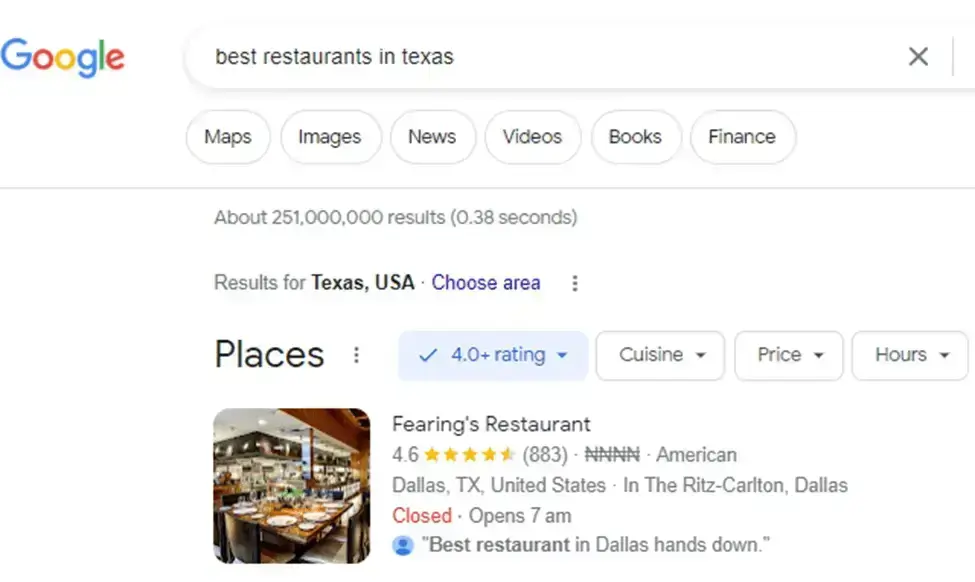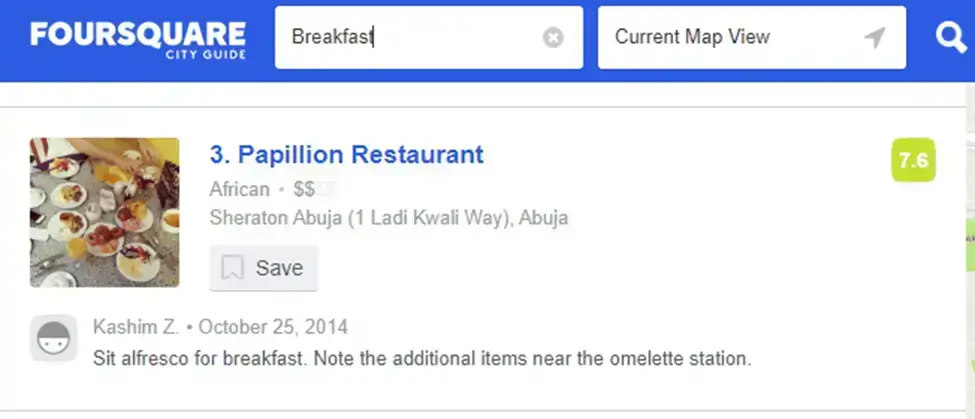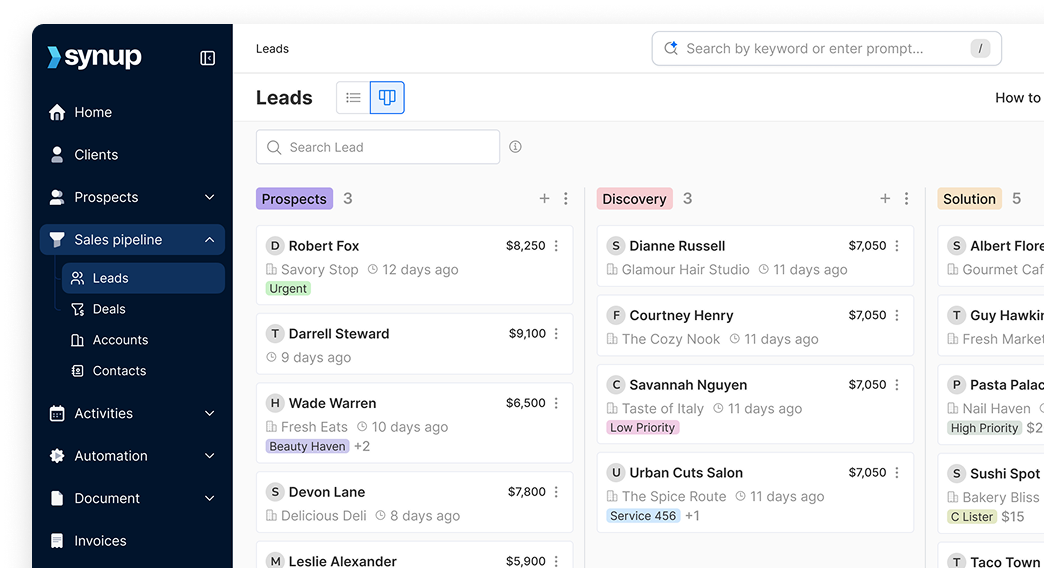How to Build Local Citations the Right Way
Learn to build trust with local citations & manage reviews for better local SEO. Discover key components & strategies.

Building local citations is a crucial component of any business SEO strategy. Building trust is essential to selling your business. Citations can help you establish this trust and advance your business in local SEO rankings.
Citations demonstrate to Google and other search engines that your company is real and reputable. They prove authenticity because they show your posts are supported by numerous sources. It is therefore crucial to give them consistent citations, especially of business details such as names, addresses, and phone numbers.
This article explains local citations in detail and explores the types and process of building local citations. Additionally, it explains managing citations in addition to outlining automated and manual SEO techniques.
What are Local Citations?
Any online reference of your company is considered a local citation. This could be your mentions on a local website, a blog, an industry-specific website, a business directory, another website serving the area, or even a local newspaper website.
The primary pieces of information in a local citation are the company name, address, and phone number, commonly known as NAP.
Local citations can improve search engine rankings. It can also help increase your authority and exposure online.
Customers don't always search for local companies on Google or Bing. They frequently use websites like Foursquare, Yelp, and specialized directories. That's one of the reasons why it's crucial to have local citations on these sites. Another significant reason is business directories tend to rank high in search results for local inquiries.
Try looking up "restaurants in Texas" on Google as an example. The majority of the top results are not websites for restaurants. What you mostly see are business directories with extensive lists of restaurants.
You must have local citations on directories like these to increase your chances of getting found by people looking for your business. This is because Google and other search engines return these types of results for local queries. The image below shows an example of looking up restaurants in Texas on Google

These local citations for businesses can be found on a wide range of online directories for local listings, including:
- Directories for specific industries, markets, or sectors (Flipkey, bookings.com)
- Press websites and regional newspapers (The Washington Post)
- Social networking websites like FourSquare, Facebook, YouTube, and Twitter
- Regional search tools (Google, Bing)
- Map-based services (Google Maps, Apple Maps)
- Local directories of businesses (Foursquare)
- Online reviews (Yelp, Amazon, TrustPilot)
- Aggregators of data (Factual)
The following is an example of a shopping business citations on Yelp

To effectively build local citations, it is important to understand what constitutes a local citation's key components. They include
- Name, Address, and Phone are referred to as NAP
- A corporate website with photographs
- Maps, and a geographic location
- A business description with hours of operation
- Images, videos, client testimonials, and links to social media profiles
- An email address
Why are Citations Important for Local SEO?
Citations make it easier for clients to locate companies that provide the goods and services they're looking for. This is crucial for local SEO. Your business will show up more prominently on Google's local search results thanks to this local SEO hack. How citations assist businesses with local SEO is explained in the section that follows.
How Do Citations Help With Local SEO?
Citations are a ranking factor for local SEO. They support local SEO by giving search engines like Google details of the address, phone number, and reputation of a company. Additionally, citations support local SEO by offering consistency, credibility, and increased awareness.
But all citations are not equal. The quality of your local citations is crucial. For instance, if you are a local business, a citation from a local source in a similar niche will hold much more value than a citation from an unrelated source.
High-quality citations give reliable and pertinent information about a company and are derived from reliable sources.
Google closely considers the quantity and consistency of citations across the web when assessing a local business. "Consistent and accurate citations across the web help Google verify that a business is legitimate and that the information about that business is accurate," says Google regarding the significance of citations for local SEO.
How Citations Help Prospective Clients Discover Your Business
- It Serves as a Reference for Your Business Name Which Helps With Discovery on SERP
Citations are references to your company's info online, including name and contact info. These specifics enable Google to distinguish your business from all other businesses listed online, consolidating your identity. With this, citations make it simpler for customers to find your company.
The more references your company has online, the more likely it is that people looking for your business will find it. An example is shown below.

- Help With SEO and Credibility
Search engines consider a wide range of variables when determining the overall quality of their search results. Citations on reputable websites are one of the important variables.
The more citations your company has, the more proof Google has that your company is legitimate and operates as described.
- Improved Search Rankings and Online Visibility
The more places your business is listed, the more likely it is that people looking for similar items or services online will find you. Your company is more likely to show up in local search results when potential customers look up relevant keywords.
In organic local search results, reputable directories like Yelp and Foursquare rank highly. Local businesses have a greater opportunity to rank on the first page of SERPs thanks to these online business directories.
- It Provides Additional Information About Your Business
Citations can provide prospective clients with additional information about your business, such as your hours of operation, website address, and reviews. This information can help build trust and credibility with prospective clients. This makes it easier for them to find and contact your business.
- Citations Help Increase Website Traffic Which Can Help Win More Prospective Clients
Getting potential customers to visit websites is no easy feat. Many organizations spend thousands of dollars on internet marketing but neglect building regular citations. Local SEO citations can generate more traffic for your website, thereby attracting more potential clients
What Are the Different Types of Citations?
There are two types of SEO citations, each with its unique advantages and traits. They are:
- Unstructured Citations
Unstructured citations are references to your company found on blogs and other websites. Also, in unstructured citations, your company may appear on reviews, wikis, and government databases.
Unstructured citations are mentions of your business that do not follow a standardized format, such as those found on social media or in online forums. They could be one of the most powerful citations you can obtain.
For instance, a foodie may write reviews of their favorite restaurants on a hobby blog, and then link to your restaurant. This could be quite powerful because it doesn't just provide bare-bone contact information, it provides more context and creates greater awareness about your business. Another example is an electrician service listed on a blog as shown below:

Unstructured citations can be influenced by a wide range of variables. By understanding these variables, organizations can increase the likelihood of receiving high-quality unstructured citations to boost their online visibility and reputation.
Factors to Consider in Building Unstructured Citations
Brand recognition and online reputation: The more people talk about your company in unstructured citations, the more likely it is that you'll get even more unstructured citations, like a snowball effect.
However, your marketing efforts, the quality of your customer's experiences, and your reputation as a whole can all influence this likelihood. A good online reputation =might improve the possibility of getting unstructured testimonials from pleased clients, but a bad one can decrease the number of testimonials or negative comments.
Social media and content quality: A strong social media presence can enhance the possibility of acquiring unstructured citations from social media sites like Twitter, Instagram, or Facebook. The caliber of your content, the size of your audience, and the kind of interaction you have with your followers can all have an impact on this.
Relevance to industry: The quantity and caliber of unstructured citations may vary depending on how pertinent your company is to a particular industry. If your company is in the technology sector, for instance, you can get more unstructured citations from tech blogs or forums.
Geographical location: Local websites, blogs, and forums are more likely to provide unstructured citations for local firms in the location.
- Structured Citations
A structured citation occurs when your company's name, address, and phone number appear on third-party websites or in pertinent business directories like Apple Maps, Google My Business, Nextdoor, or Yelp. Any mention of your company in a formal directory, such as one of the major directories or a data platform, is regarded as a structured citation.
Structured citations follow a standardized format, such as your business name, address, and phone number (NAP). They are more formal, while unstructured citations are a bit more laid back and casual.
An example of a structured citation is a furniture company or plumbing business featured on Yelp. Structured citations can be impacted by several variables, such as your business's consistency and completeness of the information. It is also impacted by the caliber and relevance of directories and listings where your company is featured, and the number of citations you have.
Factors that may affect your structured citations:
The accuracy of the citation: The consistency of your business information is one of the most crucial elements that affect structured citations. Included in this is the accuracy of your company's name, address, and phone number (NAP), which needs to be the same on all online directories and websites that list businesses.
Quality of directories and listings: Your structured citations may be impacted by the authority and appropriateness of the directories and listings that reference your company. Your business's visibility on search engine results can be enhanced by citations on reputable, pertinent directories.
Completeness of information: Besides being accurate, your business details also have to be thorough and complete on all directories and listings to maximize the potential of your structured citation.
The number of citations: Your company's internet exposure may be impacted by the number of structured citations it has. Generally speaking, your chances of showing up in local search results increase with the number of high-quality citations you have.
How To Find and Build Citations?
Finding and building citations can be a tedious task. Finding citations in the context of SEO refers to locating internet mentions of a specific company or website. Creating and uploading online references to a specific company or website in order to increase its visibility in local search is known as "building citations". Use the following tips when finding and building citations.
- Use Link Citation Finder Tools
Citation tools are a practical collection of applications that make referencing sources easier and faster, saving you time and effort. Use these tools when looking for citation directories and building your citations.
- Use Local Business Directories
If your business is already listed on your local directories, check to make sure the information is correct. If there isn't a listing for your company yet, you can also create one.
- Data Aggregators
Data aggregators are data-mining platforms that disseminate commercial information online. They gather and distribute company data from numerous sources, including Google and search engines. Data aggregators assist in compiling information on companies and supplying it to other websites. In other words, they aid in increasing local citations.
- Build Consistent Citations
NAP, which stands for "name, address, phone," is one of the most crucial elements of a local citation. Maintain consistency across the web with these three elements.
- Use Keywords When Building Citations
Keywords are critical to any SEO technique. Use the right keywords to describe your company to boost your local listings. The description's placement is also crucial. Ideally, the business's name, address, and phone number should be placed right next to the description.
- Add Citation Information On the Website
To build efficient citations, direct your viewers to the NAP page or the contact page first rather than your homepage.
- Examine Review Sites When Building Citations
Review websites are useful for citations. Examine online review sites for information about your business, and make sure that all of the details—including the address, phone number, and website—are correct. Post some of the positive reviews from these review sites on your website if you can. Also, Google links to reviews containing local citations from many websites in query results, and you can leverage this to raise your rankings.
- Develop Your Local Citation Profile
One of the most practical ways to develop citations for your company is to target the top 30-40 citation sources, then go after a handful of industry specific sites in your niche that ranks for the terms you are trying to show up for. This should be enough for most businesses. After that you can use tolls to find out citation sources of your competitors and target them
- Use Social Media
Having a social media presence for your company increases client interaction and provides more opportunities to get citations.
- Search for Local Business Listings and Competitors
All businesses around the globe have access to well-known local business directories like Yelp. Google can be used to look up these listings. The idea here is to research listings of businesses in your neighborhood. You can do this by simply searching relevant keywords on these directories.
Why is Data Consistency Important While Building Citations?
The term "data consistency" describes the use of the same format, style, and details throughout all citations. Data consistency is crucial for creating citations since it guarantees that the data is valid and can be independently verified.
Your local search ranking and the quality of your citations depend on the consistency of your data. Your citation listings on your local search ecosystem must contain a consistent name, address, and phone number. Make sure you have a single, accurate, and comprehensive listing on each of the most crucial websites.
In addition to other formatting norms, you also need to use abbreviations and italicization consistently.
Refrain from utilizing acronyms like Ltd. unless you're prepared to do so in all your NAP mentions. Also, maintain consistency in your NAP's text and format across all platforms.
For instance, don't change phone area and country codes, add or remove spaces. Do not edit addresses to include additional information like floors or suites if you haven't done so elsewhere.
Managing Citations for Multi-Location Businesses
Multi-location businesses refer to either a corporate office with franchise locations or a company with numerous branches. Before you begin managing citations for multi-location businesses, take note of the following to ensure consistency throughout all citations.
- Use a Tool for Managing Local Citations Automatically
With an automatic solution for managing local citations, you only need to enter your company's details once. You will receive numerous citations when the platform adds you to its database of directories. You might even get notifications for potential listings to post on.
These technologies can aid in the automation of citation management and guarantee the accuracy and correctness of all data. To make sure that all of the information is correct and consistent across all platforms, an automated tool can assist in conducting routine audits of your company's citations.
- Use a Database to Store Business Information
Create a central database with all of your company's locations and NAP data. This will make it easier to guarantee the accuracy and consistency of all location data across all platforms.
- Focus on Crucial Directories and Monitor Reviews
Concentrate on increasing your citations in directories and platforms that are relevant to your area, such as city-specific directories and websites run by your local chamber of commerce. Encourage your customers to submit reviews on a variety of websites, including Facebook, Yelp, and Google. To demonstrate that you value consumer feedback, keep an eye on all reviews and reply when necessary.
Manual vs Automated SEO Tools
Manual SEO entails manually integrating on-page and off-page SEO tactics into a website. On the other hand, the implementation of SEO techniques using fully or partially automated tools or platforms is known as automated SEO.
Manual SEO Tools
Manual SEO has a few benefits, even though it can be laborious and time-consuming. These include
- It Lets You Assume Full Accountability for Outcomes
You have complete control over your optimization tactics while using manual SEO. Manual SEO is preferable if you like to be in charge and if you're cautious about the intricacies of digital marketing. However, if you'd like to outsource SEO management, SEO automation is your best option.
- It Ensures You Follow the SEO Plan
With manual SEO, you can keep a closer eye on certain tasks to ensure it’s completed as intended. This allows you to closely watch the development of various functions and their anticipated outcomes.
An example of an SEO task that needs manual execution is keyword research.
- Improves Off-Page SEO
By carefully selecting backlinks, manual SEO can help you improve your off-page SEO. Off-page SEO is the process of raising your website's ranks through activities on other websites. It also covers activities like creating meta descriptions, making websites more search engine friendly, and more. A key benefit of manual SEO is the relative ease of adjusting parts of your site that automated solutions might not be able to, including off-page SEO results.
- It Allows You Control Links
When it comes to web marketing, people often choose the manual route. Compared to using automated tools, manual SEO gives them more control over the links and their Google rating. Determining where your website will be linked to, the caliber of the content, and the web pages around the backlinks can all be done more easily and effectively.
Automated SEO Tools
Now, here are some reasons why you might want to use automated SEO instead of manual:
- It makes it quite simple to research the backlinks, keyword density, tags, and Meta text of your competitors to find what works best.
- Automated SEO enables you to schedule SEO tasks, saving you time.
- Your ROI will increase because you won't need to recruit a sizeable SEO crew.
The following are some ways that automated technologies can help reduce costs and optimize your efforts in the long run.
- It Saves Time and Cost
Automation of SEO is reasonably priced. SEO work can be done more quickly and at a substantially cheaper rate. Manual SEO takes more time. But a computerized SEO strategy can work more quickly, hence, minimizing costs.
It's one of the features that digital marketers and SEO specialists love the most since it makes their daily tasks easier, streamlines their job, and helps them save a lot of time with automatic schedules.
- Improves Analysis
Automated SEO eliminates tedious work, such as in finding relevant data like the best keywords. As such, it makes it easy to improve a site's ranking by updating keywords and other relevant data. Analyzing your competitors' backlinks, keyword density, tags, and meta text are all easier to do with automated SEO.
Why You Don’t Need Hundreds of Citations to Rank Well in Local Searches Anymore
Having strong fundamental citations will help you rank better in local search results. Hence, your citation's quality is more crucial than the quantity.
Also, these days, search engines take into account several variables, including a company's relevance to the search query, and the frequency of online reviews.
Focus on building quality citations. The following tips can help you improve the quality of your citations so you don't have to create hundreds of them.
- Get more external websites to display your NAP information.
- Ensure that your citations are accurate.
- Improve each one by including as much more information as the fields on that site let.
Conclusion
This article discussed local citations in detail. In conclusion, it is important to have a good citation profile to optimize for local SEO. Citations are regarded as one of the fundamental principles of local search. You can proceed to additional tasks like link development, interaction, content production, and reputation management once you have finished your citations.
Local citations increase your company's online visibility and improve search engine rankings. Whether you choose unstructured or structured local citation building, it's imperative to make sure your company's name, address, and phone number are accurate and consistent across all platforms.
Proper citations will benefit the company not only in search rankings but also in terms of sales and consumer confidence.

